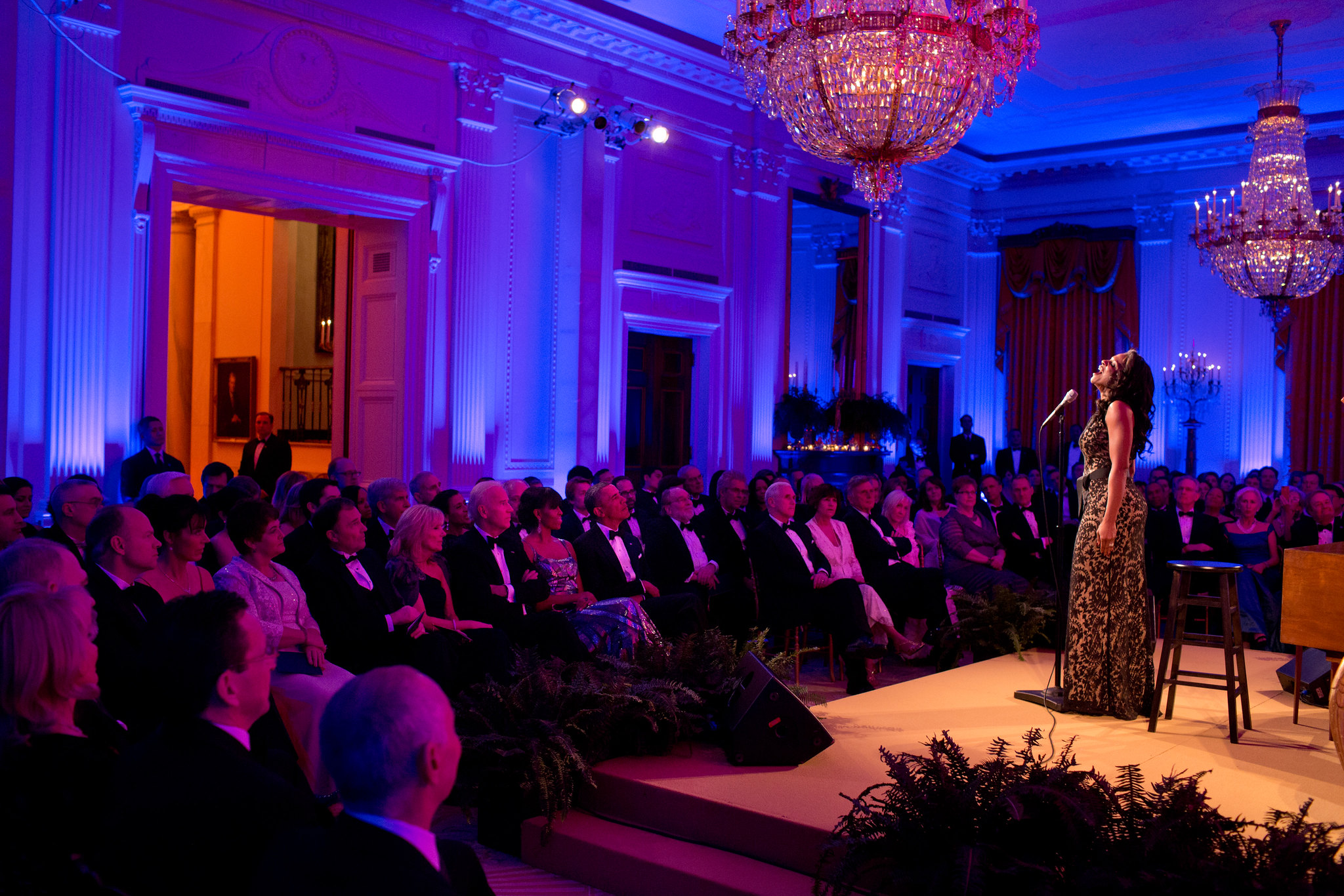The History of the Tony Awards Is Rich With Women, But You Wouldn’t Know It
photo credit: Rian Castillo [CC BY 2.0], via Flickr
When Tony Award-winning Broadway director Rachel Chavkin accepted the 2019 Tony Award for Best Direction of a Musical, she said the following about being the only woman directing a musical on Broadway this season: “There are so many women who are ready to go. There are so many artists of color who are ready to go. And we need to see that racial diversity and gender diversity reflected in our critical establishment, too. This is not a pipeline issue; it is a failure of imagination by a field whose job is to imagine the way the world could be. So let’s do it!”
Antoinette Perry. Photo credit: Theodore C. Marceau (1859-1922) [public domain], via Wikimedia Commons
Let’s do it, indeed. Take a look at one of the highest critical establishments there is in theater, the Tony Awards.
First, here’s a little history lesson from Wikipedia. Mary Antoinette Perry loved acting from a young age but was forbidden to follow that love by a father who did not want his daughter to become an actress. Instead, she was sent to music school to study voice and piano, but she later went against her father’s wishes and became a rising star on the theatrical stage. In 1928, she moved behind the curtain and began directing and producing. Perry helped found the American Theatre Wing, a New York City-based organization "dedicated to supporting excellence and education in theatre," which played an important role in charitable giving and soldier relief efforts during both World Wars.
After Perry’s death in 1946, an American Theatre Wing committee proposed the creation of an award in her honor, and the first Antoinette Perry Award for Excellence in Broadway Theatre, aka a Tony Award, was presented in 1947.
I had no idea the Tony Awards were named after a woman. In fact, it’s the only award in the EGOT (Emmy, Grammy, Oscar, Tony) quartet named for an actual person, so the fact that the Tony is so called because of a woman seems like a pretty big deal, right?
As in most cases when it comes to high recognition, the history of women winning Tony Awards is sparse. In 1918, Lillian Trimble Bradley was the first woman to direct a show on Broadway, but a woman wasn’t nominated for a directing Tony until 43 years later in 1961, and it wasn’t until 1989 that a woman independently won a Tony for directing — in fact women took both the Direction of a Musical and Direction of a Play awards that year. It took 80 years for a woman to be recognized for doing great work in a field that men thought was too technical and detailed for women to handle (picture me rolling my eyes super hard here).
It didn’t take quite as long for women to be recognized in other categories, but it’s important to note that the first women to be given Tony Awards were almost always part of a partnership with a man. For example, in 1956, Frances Goodrich was the first woman to win Best Play for The Diary of Anne Frank as a co-writer with her husband, Albert Hackett. It would be another 33 years before the first woman, Wendy Wasserstein, won Best Play independently in 1989, and she was only the second woman ever to win the award. In 1968, the Best Score Award went to lyricist Betty Comden, but it was with her writing partner, Adolph Green. It wasn’t until 2013, a full 45 years later, when Cyndi Lauper finally became the first woman to win Best Score without a male writing partner.
Audra McDonald performs at the White House on February 24, 2013. Photo credit: IIP Photo Archive [CC BY-NC 2.0], via Flickr
And get this: actress and singer Audra McDonald has been awarded more performance Tony Awards than anyone else, and two other women, Julie Harris and Chita Rivera, have been nominated more often than any other performers. It appears that Broadway is suffering from the same ailment as women’s soccer. Women are outperforming men, but men continue to reap the benefits of recognition. In this case, it may not be financial compensation, but it's the opportunity to lead, to be the person in charge of the show’s direction, sound, or visual effects that’s missing. The pipeline that Rachel Chavkin referred to is clogged, plugged up with men who are blocking women who have been waiting to shine and lead, women like Lillian Trimble Bradley and the Tony Awards’ namesake, Mary Antoinette Perry, did before them.



